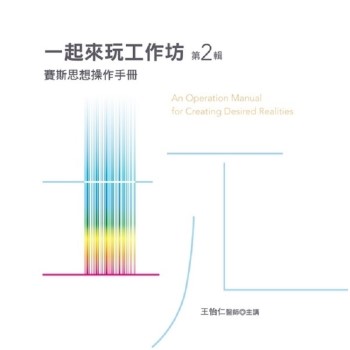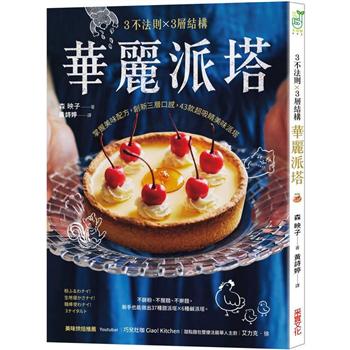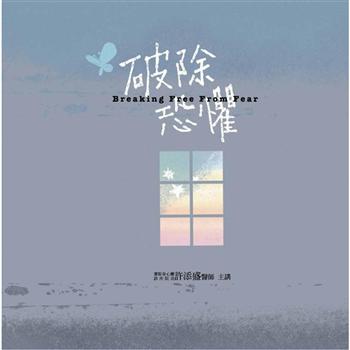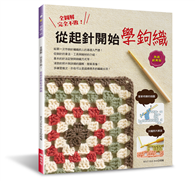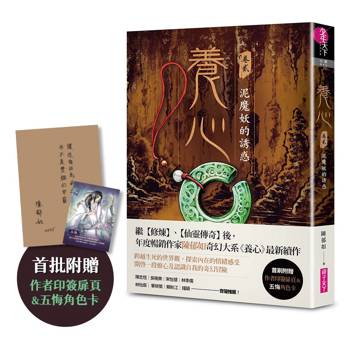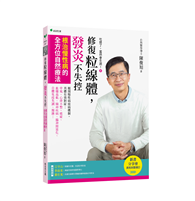本書以十九世紀晚期英國文學作品及其中譯本為研究對象,
辨析文本與文化的(不)可譯性。
所謂翻譯,就是把以一種文字寫成的文本以另一種文字解讀和詮釋,其定義往往離不開上述局限於語文層面上的二元解讀。《文化翻譯:十九世紀末英國文學的中譯》一書的主旨,乃是從上述架構以外的文化角度,探討文化此一概念對翻譯和一個文本的「可譯性」所帶來的影響。透過集中研讀十九世紀末英國的文學作品和其中譯本,並依據不同主題和體裁將之歸類,本書指出了文化與翻譯活動的因果關係,比一般想像來得緊密、細膩,並藉著以上的分析,進一步探討翻譯和文化之間的關係之餘,闡釋翻譯研究對文化研究所可以帶來的啟思。
The idea of translation is traditionally understood as a binary phenomenon—a process which re-interprets and re-presents an original text in one language for a different audience in another language. The aim of Translating Culture: Late-Victorian Literature into Chinese is to look at how the notion of culture convolutes this predominantly language-based practice and considers its implication on a text’s “untranslatability.” By focusing on literature of the late-Victorian period, grouping them into different themes and genres, and considering the way these texts have been translated into Chinese, an argument will be made that the idea of culture and the practice of translation are much more closely correlated than has been commonly assumed. In doing so, this book contributes to recent scholarship on translatology and cultural studies by examining the exactitude to which the process of translation must account for the concept of culture, as well as with how the former could help enhance our understanding of the latter.
名家推薦
“Addressing the important issue of culture translation with ample examples culled from prominent Victorian writers and representative Chinese translations, this is a timely and significant contribution to the burgeoning field of translation studies. Sensitive, insightful, and lucidly written, the book is a joy to read.”――Ching-Hsi Perng, Professor Emeritus, National Taiwan University
“Moving beyond the conventional cataloging of source-target textual divergences, this study takes a refreshing look at how literature can cross cultural barriers as vast as those separating the late-Victorian period from contemporary China. Isaac Yue demonstrates with flair how translation is itself a form of reception, rather than ancillary to it.”――Leo Tak-hung Chan, Professor of Translation, Lingnan University
“Translating Culture is refreshingly original and rich exploration of the complexities of thinking about linguistic and cultural translation, from English to Chinese. Focusing on literature from the dynamic and swiftly changing late-Victorian period, the book focuses on eight case studies whose rich use of language and imagery provide unique challenges for thinking about a range of fascinating topics. How, for example, do concepts like the ‘new woman’ or ‘empire’ translate across cultures? Yue’s study will be essential reading for all those interested in the Victorian fin-de-siècle and global issues.”――Mark Turner, Professor of English, King’s College London
| FindBook |
有 6 項符合
Translating Culture:LateVictorian Literature into Chinese的圖書 |
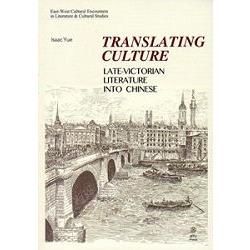 |
Translating Culture: Late-Victorian Literature into Chinese 作者:Isaac Yue 出版社:國立臺灣大學出版中心 出版日期:2023-04-01 語言:繁體中文 規格:普通級/ 初版 |
| 圖書選購 |
| 型式 | 價格 | 供應商 | 所屬目錄 | 電子書 |
$ 269 |
教育學習 |
$ 269 |
教育學習 |
$ 299 |
中文書 |
$ 299 |
語言學 |
$ 306 |
教育學習 |
$ 306 |
文學作品 |
|---|
| 圖書館借閱 |
| 國家圖書館 | 全國圖書書目資訊網 | 國立公共資訊圖書館 | 電子書服務平台 | MetaCat 跨館整合查詢 |
| 臺北市立圖書館 | 新北市立圖書館 | 基隆市公共圖書館 | 桃園市立圖書館 | 新竹縣公共圖書館 |
| 苗栗縣立圖書館 | 臺中市立圖書館 | 彰化縣公共圖書館 | 南投縣文化局 | 雲林縣公共圖書館 |
| 嘉義縣圖書館 | 臺南市立圖書館 | 高雄市立圖書館 | 屏東縣公共圖書館 | 宜蘭縣公共圖書館 |
| 花蓮縣文化局 | 臺東縣文化處 |
|
|
圖書介紹 - 資料來源:博客來 評分:
圖書名稱:Translating Culture:LateVictorian Literature into Chinese
內容簡介
作者介紹
作者簡介
余文章
現為香港大學中文學院助理教授兼文學院副院長,並為《文學論衡》和《東方文化》的編委會成員。曾任英國倫敦大學訪問學人、臺灣大學訪問學人和史丹佛大學訪問學人,研究重心為翻譯研究、文化身分、東西文化交流(以十九世紀為主)、古典小說以及中華飲食文化與文學。
Isaac Yue is Assistant Professor of Chinese and Associate Dean of Arts at the University of Hong Kong, which he joined in 2007. He is an editorial member of The Journal of Chinese Literary Studies and Journal of Oriental Studies and in the past has held visiting positions at the University of London, National Taiwan University, and Stanford University. His research interests are translation studies, cultural identity, Sino-West relationship with a special focus on the nineteenth century, classical Chinese novels, and Chinese food literature and culture.
余文章
現為香港大學中文學院助理教授兼文學院副院長,並為《文學論衡》和《東方文化》的編委會成員。曾任英國倫敦大學訪問學人、臺灣大學訪問學人和史丹佛大學訪問學人,研究重心為翻譯研究、文化身分、東西文化交流(以十九世紀為主)、古典小說以及中華飲食文化與文學。
Isaac Yue is Assistant Professor of Chinese and Associate Dean of Arts at the University of Hong Kong, which he joined in 2007. He is an editorial member of The Journal of Chinese Literary Studies and Journal of Oriental Studies and in the past has held visiting positions at the University of London, National Taiwan University, and Stanford University. His research interests are translation studies, cultural identity, Sino-West relationship with a special focus on the nineteenth century, classical Chinese novels, and Chinese food literature and culture.
目錄
Acknowledgement
Introduction
1 Metaphors and the Discourse of the Late-Victorian Divided Self: the Cultural Implications of Strange Case of Dr Jekyll and Mr Hyde
2 The Case of Raffles and the Translational Depreciation of Detective Fiction
3 The New Woman Novels and their Translations (or Lack Thereof)
4 Style Matters! Re-evaluating the Chinese Translations of Joseph Conrad’s Heart of Darkness
5 Dandyism and Witticism: The Importance of Being Oscar Wilde in the Context of Translation
6 Anti-Imperialism in Translation and H. G. Wells’s The Island of Doctor Moreau
7 Kim: A Case Study in Translation Regarding the Hybridity of Rudyard Kipling’s Imperialism
8 On Translating William Butler Yeats and the Decadence of Symbolism
Afterword
Notes
Bibliography
Index
Introduction
1 Metaphors and the Discourse of the Late-Victorian Divided Self: the Cultural Implications of Strange Case of Dr Jekyll and Mr Hyde
2 The Case of Raffles and the Translational Depreciation of Detective Fiction
3 The New Woman Novels and their Translations (or Lack Thereof)
4 Style Matters! Re-evaluating the Chinese Translations of Joseph Conrad’s Heart of Darkness
5 Dandyism and Witticism: The Importance of Being Oscar Wilde in the Context of Translation
6 Anti-Imperialism in Translation and H. G. Wells’s The Island of Doctor Moreau
7 Kim: A Case Study in Translation Regarding the Hybridity of Rudyard Kipling’s Imperialism
8 On Translating William Butler Yeats and the Decadence of Symbolism
Afterword
Notes
Bibliography
Index
序
Introduction(excerpt)
This book contains eight essays; each focuses on a unique theme that intersects with one aspect of the manifestation of late-Victorian society. The purpose of this approach is to facilitate reading and to give a sense of the diverse cultural richness that constituted the milieu of this period. Chapter 1 deals with Robert Louis Stevenson’s Strange Case of Dr Jekyll and Mr Hyde (1886) in the context of the divided self—a fitting beginning which in many way summarizes the epic struggle of the age. By situating the Jekyll and Hyde relationship within the cultural questions of the time, and alongside other texts with a similar theme including Oscar Wilde’s The Picture of Dorian Gray (1891) and Bram Stoker’s Dracula (1897), I argue for the importance of this contemporary cultural sub-current which informs this work and evaluate a number of Chinese translations according to this yardstick.
Chapter 2 continues the investigation of the notion of the divided self in terms of its manifestation in Ernest William Hornung’s Raffles stories. Here, the divided self serves as a case study to illustrate the chapter’s larger focus: namely, the conception of “literature” and the impossibility of separating it from its cultural roots and the idea of translational depreciation. The intent here, as it is throughout the book, is not to pass judgment on a specific translation, but to explore the different receptions of a text in its source and target cultures and to analyze this in the context of translation. By drawing upon the idea of culture as a means to determine the extent to which a work can be canonized as “literature,” this chapter aims to explore both the cultural implications of late-Victorian detective fiction and, by extension, its literary qualities as conveyed to both its original audience and target readers. The impact of this process on the appreciation and translation of a particular text will also be considered.
Chapter 3 concerns the rise of the women’s emancipation movement in the 1880s and 90s and the complementary emergence of “New Woman” literature. My investigation here will be conducted from a comparative cultural perspective, which is intended to give readers a sense of the origin and manifestation of the New Woman Movement in the Victorian fin de siècle and China’s own take on gender politics and the female role in society since the late Qing Dynasty. Throughout this chapter, attempts will be made to situate this study in a larger (global) cultural context in order to explain the absence of Chinese translations of New Woman novels.
Chapter 4 focuses on the importance of semantics in translation. Using Joseph Conrad’s Heart of Darkness (1899) as a case study, I draw attention to the distinctive writing style of Conrad and explore the ways that his style enriches his text with a specific cultural quality. Utilizing a number of modern Chinese translations of this novel, this chapter sheds new light on the interrelationship between semantics and culture in translation and evaluates the varying degrees of success of incorporating linguistic and cultural features in three Chinese translations of Conrad’s famous novel.
Chapter 5 examines the cultural ideologies of Oscar Wilde and the tendency of Chinese translators’ to minimize its importance in their focus on the linguistic and stylistic elements of Wilde’s works. My intention is to re-situate Wilde among the most important cultural critics of the late-Victorian period and to reconsider his stature as a canonical figure in nineteenth-century literature. Particular attention will be paid to the connection between the dandiacal witticism found in Wilde’s plays, which most translators tend to notice, and his cultural politics, which by comparison have been largely overlooked. By looking at the dandy figure in literature and the way in which Wilde superimposes his rebellious attitude onto his plays, through which the cultural significance of his writing is articulated, I contend that the translator’s seemingly justifiable focus on linguistic features does not necessarily preclude attention to other important cultural elements. I will be basing my argument on the extent to which the two notions may be read as complementary to, and even symbiotic of, each other.
Chapters 6 and 7 are inherently related in the sense that they examine the writings of H. G. Wells and Rudyard Kipling from a postcolonial perspective and consider their two representative novels—The Island of Doctor Moreau (1896) and Kim (1901)—as polar opposites in terms of their respective anti-imperialistic and jingoistic connotations. Chapter 6 focuses on Wells and Doctor Moreau. Unlike previous studies which examine the gendered and legal discourse of this text, my study draws upon Wells’s history of anti-colonial writings to argue that Doctor Moreau is, in fact, a calculated response to the emergence of jingoism during the second half of the 1890s. The translatability of this discourse in Chinese will also be discussed.
Chapter 7 looks at an opposite case as represented by Rudyard Kipling’s jingoistic writings. In an attempt to navigate between the two most common, but polarized, conceptions of Kipling as a humane sympathizer of India and an arrogant imperialist, this chapter situates Kipling in the middle of the spectrum as a hybrid colonizer—one who was attuned to the sufferings of the colonized natives but at the same time unable to transcend the dominant politics of colonialism at the time. In the course of examining the representation of this discourse in Kim, my emphasis will be spotlighted on the subtler indications of this idea and their cultural importance, along with their impacts on the Chinese translations.
The final chapter of this book works with the early poems of William Butler Yeats composed during the 1890s. Although his rise to literary fame during this period coincides with the decadence, compared to the other figures examined in this book, Yeats is often curiously left out of academic discussions pertaining to the Victorian fin de siècle. While this may be understandably attributed to the longevity of his career as well as his later prominence as a Nobel laureate and an Irish senator, the 1890s remains an important point of influence on his development as a poet and an artist, who reciprocally contributed to the shaping of the decadence milieu, especially in terms of its aesthetic philosophies. In this chapter, I argue that the key to understanding Yeats’s role lies in the way he conceptualized the milieu of the time—as less cultural-centric and more an extension of Walter Pater’s aesthete movement. By focusing on some of Yeats’s early poems, my aim is twofold: to dispel the common misconception that Yeats’s involvement with the period was peripheral and to re-situate him as one of the more influential figures of the period, whose poems resonate deeply with the spirit of the time to which a translator must pay attention.
Modern translatology has come a long way since its post-structuralist roots, in particular in regard to the question of comparative cultural (in-)equivalences. As Hanada Al-Masri points out:
Cultural understanding during the process of translation is extremely essential especially in the translation of literary texts, which require an effort on the part of the translator to retain the cultural information (reflected mostly in the figurative language) of the source text in the target text. Such cultural translation is known to be one of the most challenging aspects of translation.
As our appreciation of literature becomes more and more culture-dependent, the idea of “culture” in translation is predictably going to become increasingly central to the continual development of translatology. By drawing upon the late-Victorian age and its unique milieu, this book hopes to pave new paths for the re-examination of the importance, and essentiality, of the idea of “culture” in literature, and in the process to highlight the impact of approaching a source text from this perspective, and, in turn, to identify the criteria by which a translation should be judged.
This book contains eight essays; each focuses on a unique theme that intersects with one aspect of the manifestation of late-Victorian society. The purpose of this approach is to facilitate reading and to give a sense of the diverse cultural richness that constituted the milieu of this period. Chapter 1 deals with Robert Louis Stevenson’s Strange Case of Dr Jekyll and Mr Hyde (1886) in the context of the divided self—a fitting beginning which in many way summarizes the epic struggle of the age. By situating the Jekyll and Hyde relationship within the cultural questions of the time, and alongside other texts with a similar theme including Oscar Wilde’s The Picture of Dorian Gray (1891) and Bram Stoker’s Dracula (1897), I argue for the importance of this contemporary cultural sub-current which informs this work and evaluate a number of Chinese translations according to this yardstick.
Chapter 2 continues the investigation of the notion of the divided self in terms of its manifestation in Ernest William Hornung’s Raffles stories. Here, the divided self serves as a case study to illustrate the chapter’s larger focus: namely, the conception of “literature” and the impossibility of separating it from its cultural roots and the idea of translational depreciation. The intent here, as it is throughout the book, is not to pass judgment on a specific translation, but to explore the different receptions of a text in its source and target cultures and to analyze this in the context of translation. By drawing upon the idea of culture as a means to determine the extent to which a work can be canonized as “literature,” this chapter aims to explore both the cultural implications of late-Victorian detective fiction and, by extension, its literary qualities as conveyed to both its original audience and target readers. The impact of this process on the appreciation and translation of a particular text will also be considered.
Chapter 3 concerns the rise of the women’s emancipation movement in the 1880s and 90s and the complementary emergence of “New Woman” literature. My investigation here will be conducted from a comparative cultural perspective, which is intended to give readers a sense of the origin and manifestation of the New Woman Movement in the Victorian fin de siècle and China’s own take on gender politics and the female role in society since the late Qing Dynasty. Throughout this chapter, attempts will be made to situate this study in a larger (global) cultural context in order to explain the absence of Chinese translations of New Woman novels.
Chapter 4 focuses on the importance of semantics in translation. Using Joseph Conrad’s Heart of Darkness (1899) as a case study, I draw attention to the distinctive writing style of Conrad and explore the ways that his style enriches his text with a specific cultural quality. Utilizing a number of modern Chinese translations of this novel, this chapter sheds new light on the interrelationship between semantics and culture in translation and evaluates the varying degrees of success of incorporating linguistic and cultural features in three Chinese translations of Conrad’s famous novel.
Chapter 5 examines the cultural ideologies of Oscar Wilde and the tendency of Chinese translators’ to minimize its importance in their focus on the linguistic and stylistic elements of Wilde’s works. My intention is to re-situate Wilde among the most important cultural critics of the late-Victorian period and to reconsider his stature as a canonical figure in nineteenth-century literature. Particular attention will be paid to the connection between the dandiacal witticism found in Wilde’s plays, which most translators tend to notice, and his cultural politics, which by comparison have been largely overlooked. By looking at the dandy figure in literature and the way in which Wilde superimposes his rebellious attitude onto his plays, through which the cultural significance of his writing is articulated, I contend that the translator’s seemingly justifiable focus on linguistic features does not necessarily preclude attention to other important cultural elements. I will be basing my argument on the extent to which the two notions may be read as complementary to, and even symbiotic of, each other.
Chapters 6 and 7 are inherently related in the sense that they examine the writings of H. G. Wells and Rudyard Kipling from a postcolonial perspective and consider their two representative novels—The Island of Doctor Moreau (1896) and Kim (1901)—as polar opposites in terms of their respective anti-imperialistic and jingoistic connotations. Chapter 6 focuses on Wells and Doctor Moreau. Unlike previous studies which examine the gendered and legal discourse of this text, my study draws upon Wells’s history of anti-colonial writings to argue that Doctor Moreau is, in fact, a calculated response to the emergence of jingoism during the second half of the 1890s. The translatability of this discourse in Chinese will also be discussed.
Chapter 7 looks at an opposite case as represented by Rudyard Kipling’s jingoistic writings. In an attempt to navigate between the two most common, but polarized, conceptions of Kipling as a humane sympathizer of India and an arrogant imperialist, this chapter situates Kipling in the middle of the spectrum as a hybrid colonizer—one who was attuned to the sufferings of the colonized natives but at the same time unable to transcend the dominant politics of colonialism at the time. In the course of examining the representation of this discourse in Kim, my emphasis will be spotlighted on the subtler indications of this idea and their cultural importance, along with their impacts on the Chinese translations.
The final chapter of this book works with the early poems of William Butler Yeats composed during the 1890s. Although his rise to literary fame during this period coincides with the decadence, compared to the other figures examined in this book, Yeats is often curiously left out of academic discussions pertaining to the Victorian fin de siècle. While this may be understandably attributed to the longevity of his career as well as his later prominence as a Nobel laureate and an Irish senator, the 1890s remains an important point of influence on his development as a poet and an artist, who reciprocally contributed to the shaping of the decadence milieu, especially in terms of its aesthetic philosophies. In this chapter, I argue that the key to understanding Yeats’s role lies in the way he conceptualized the milieu of the time—as less cultural-centric and more an extension of Walter Pater’s aesthete movement. By focusing on some of Yeats’s early poems, my aim is twofold: to dispel the common misconception that Yeats’s involvement with the period was peripheral and to re-situate him as one of the more influential figures of the period, whose poems resonate deeply with the spirit of the time to which a translator must pay attention.
Modern translatology has come a long way since its post-structuralist roots, in particular in regard to the question of comparative cultural (in-)equivalences. As Hanada Al-Masri points out:
Cultural understanding during the process of translation is extremely essential especially in the translation of literary texts, which require an effort on the part of the translator to retain the cultural information (reflected mostly in the figurative language) of the source text in the target text. Such cultural translation is known to be one of the most challenging aspects of translation.
As our appreciation of literature becomes more and more culture-dependent, the idea of “culture” in translation is predictably going to become increasingly central to the continual development of translatology. By drawing upon the late-Victorian age and its unique milieu, this book hopes to pave new paths for the re-examination of the importance, and essentiality, of the idea of “culture” in literature, and in the process to highlight the impact of approaching a source text from this perspective, and, in turn, to identify the criteria by which a translation should be judged.
|
